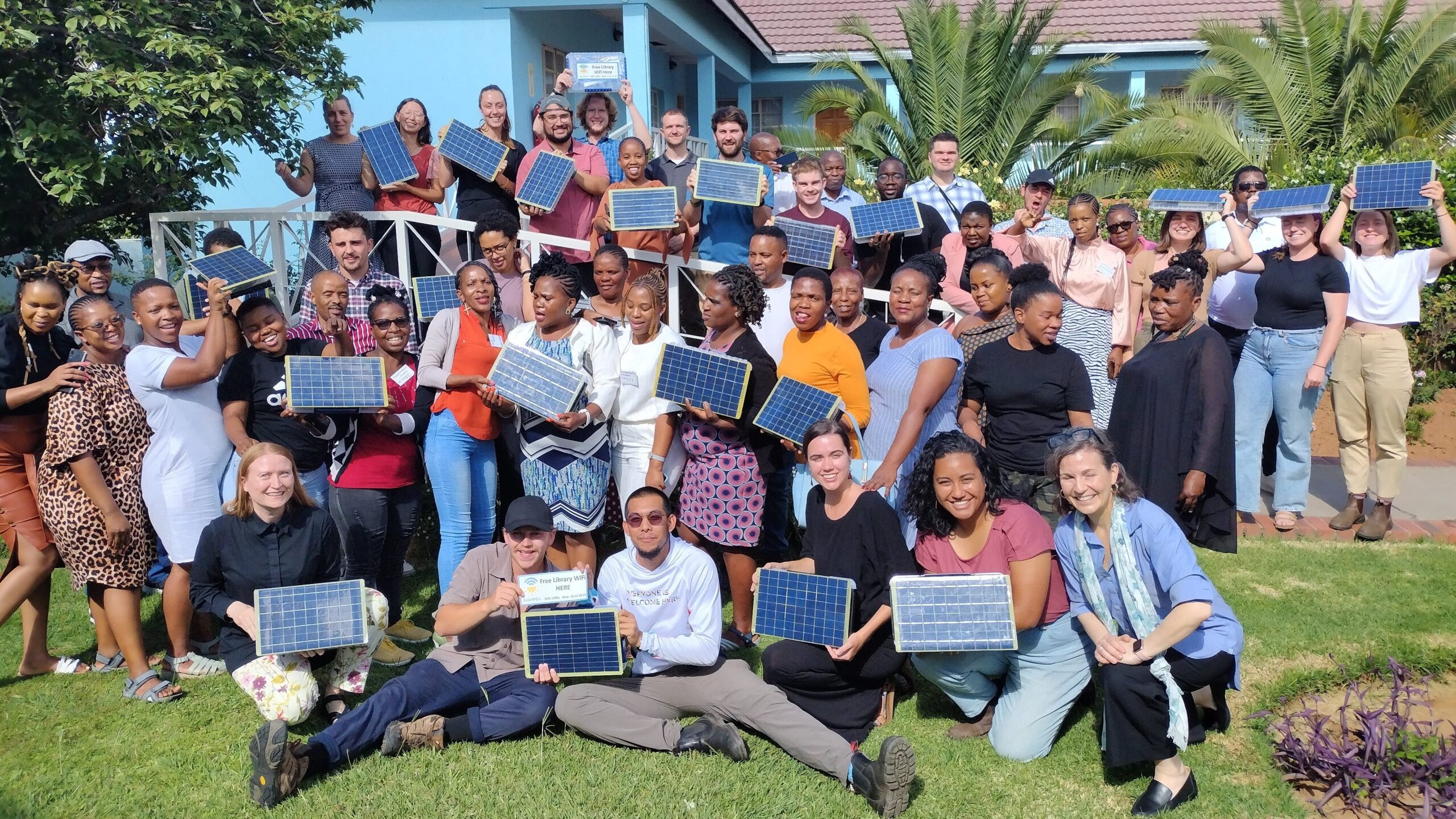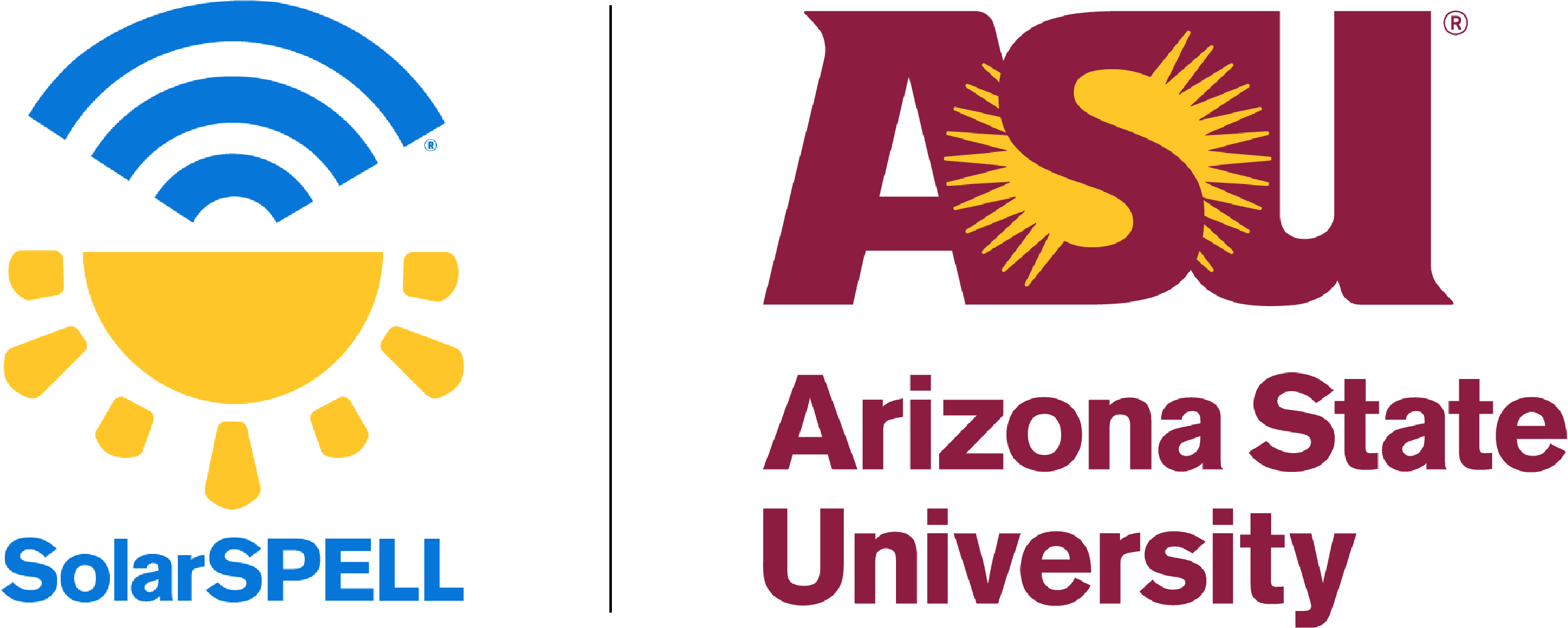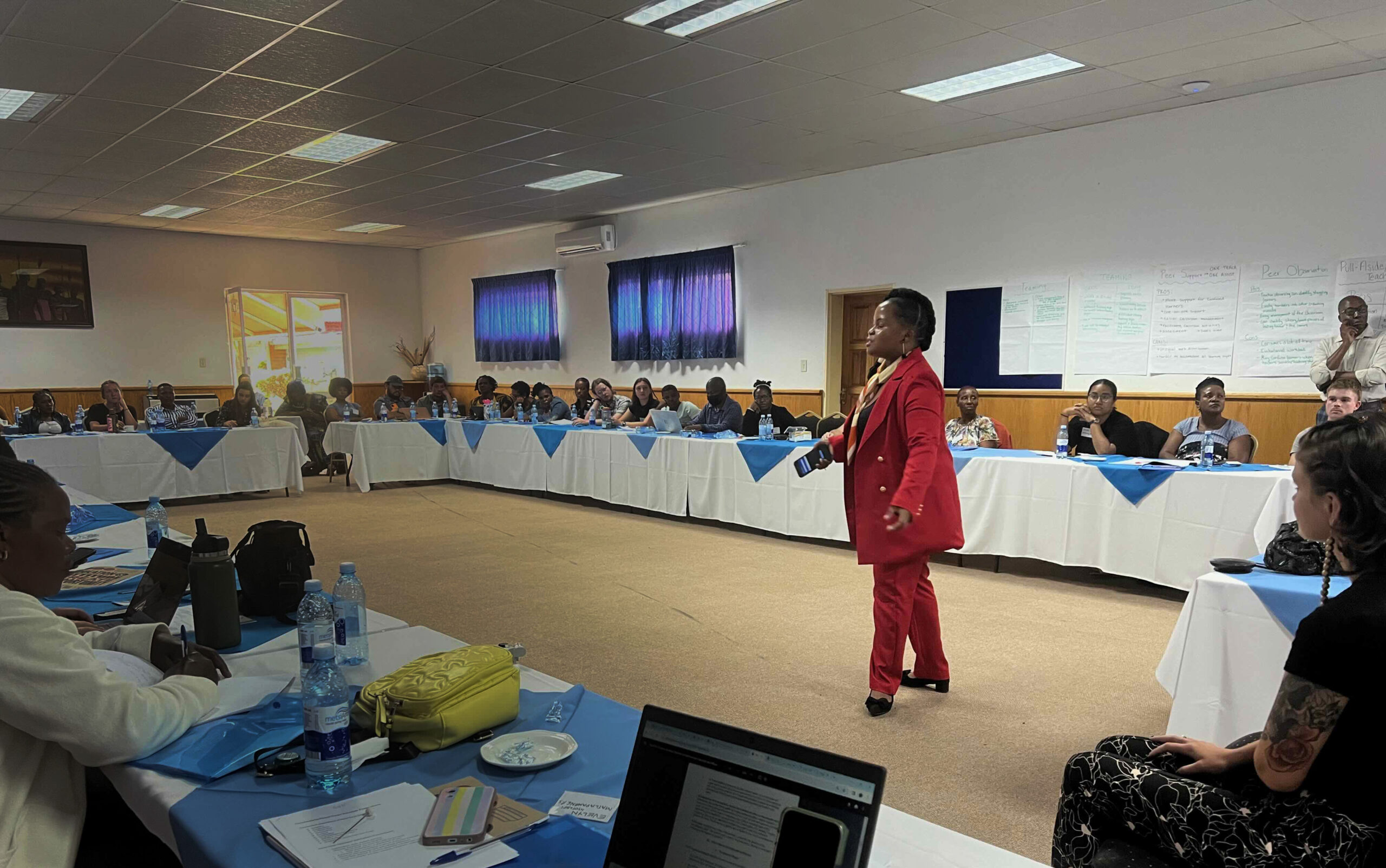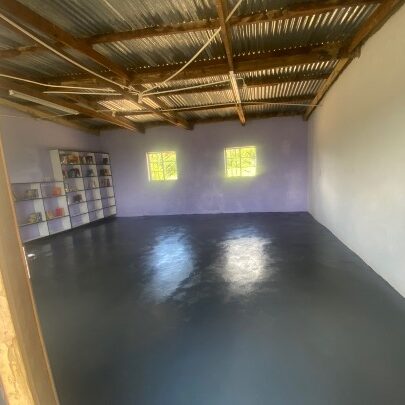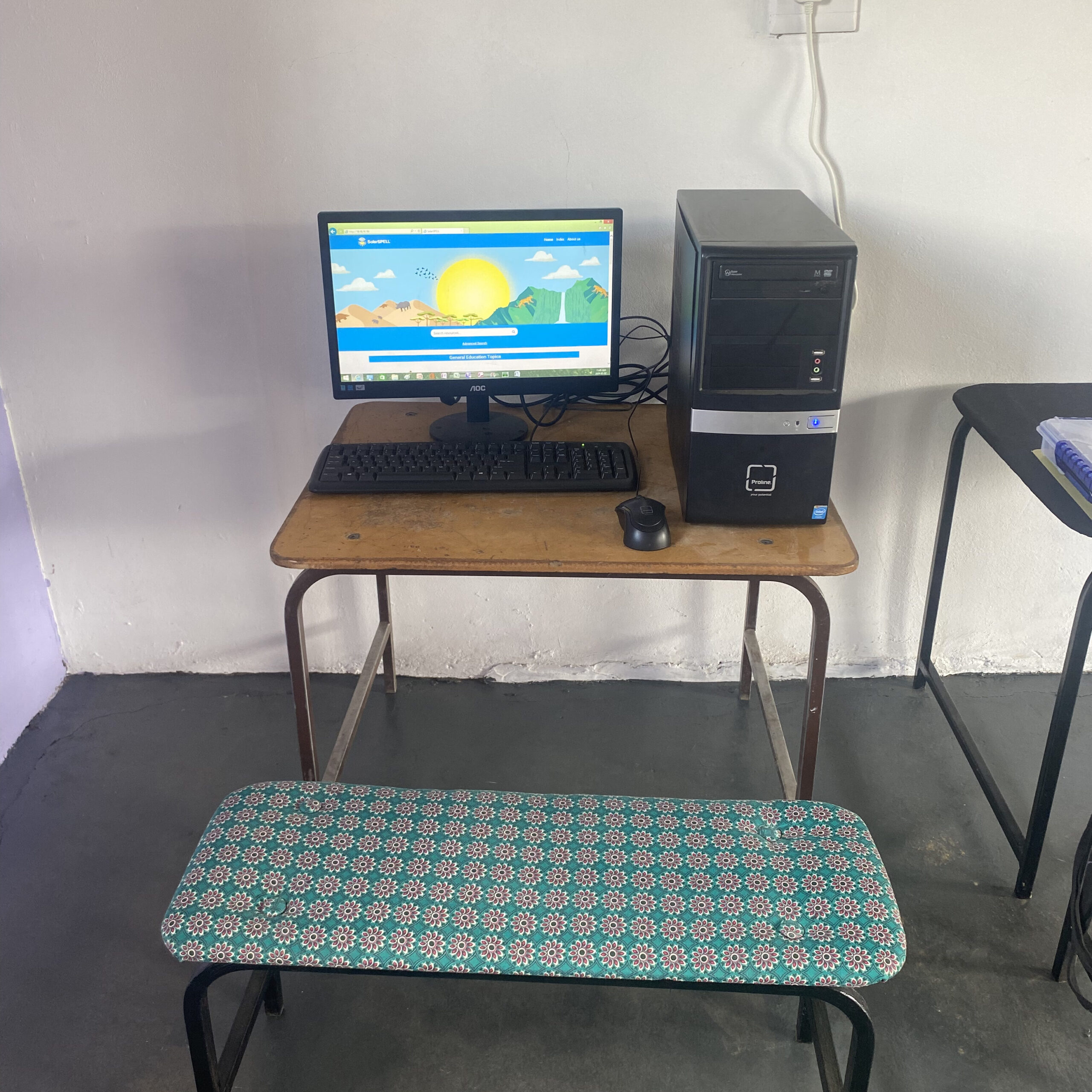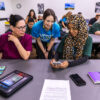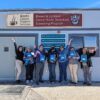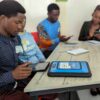’M’e Matseba Leboea teaches first, second and third grade at her rural primary school in the mountains of Lesotho’s Butha-Buthe district. It can be a challenge keeping them all engaged, and searching for new teaching tools and ideas online requires precious data.
So when her school’s principal and Peace Corps Volunteer (PCV) returned from a training last year with a SolarSPELL digital library, she quickly began using it to help her prepare lessons and find new teaching aids.
“I have been using the SolarSPELL in my class when teaching English,” said ’M’e Leboea. “I was trying to help my learners get used to different accents. So I had them listen to audio stories from the SolarSPELL.”
She’s also used it to find mathematics worksheets for her learners, a great tool for when she needs to focus her attention on one grade level. “Those worksheets are very learner-centered,” she said. “They are prepared in an easy way that learners are able to understand by themselves without the help of a teacher.”
One year after receiving that SolarSPELL library, ’M’e Leboea joined our team — along with her school’s PCV and one other PCV-teacher pair — to help train this year’s cohort of PCVs and local counterparts how to implement the SolarSPELL library at their schools.
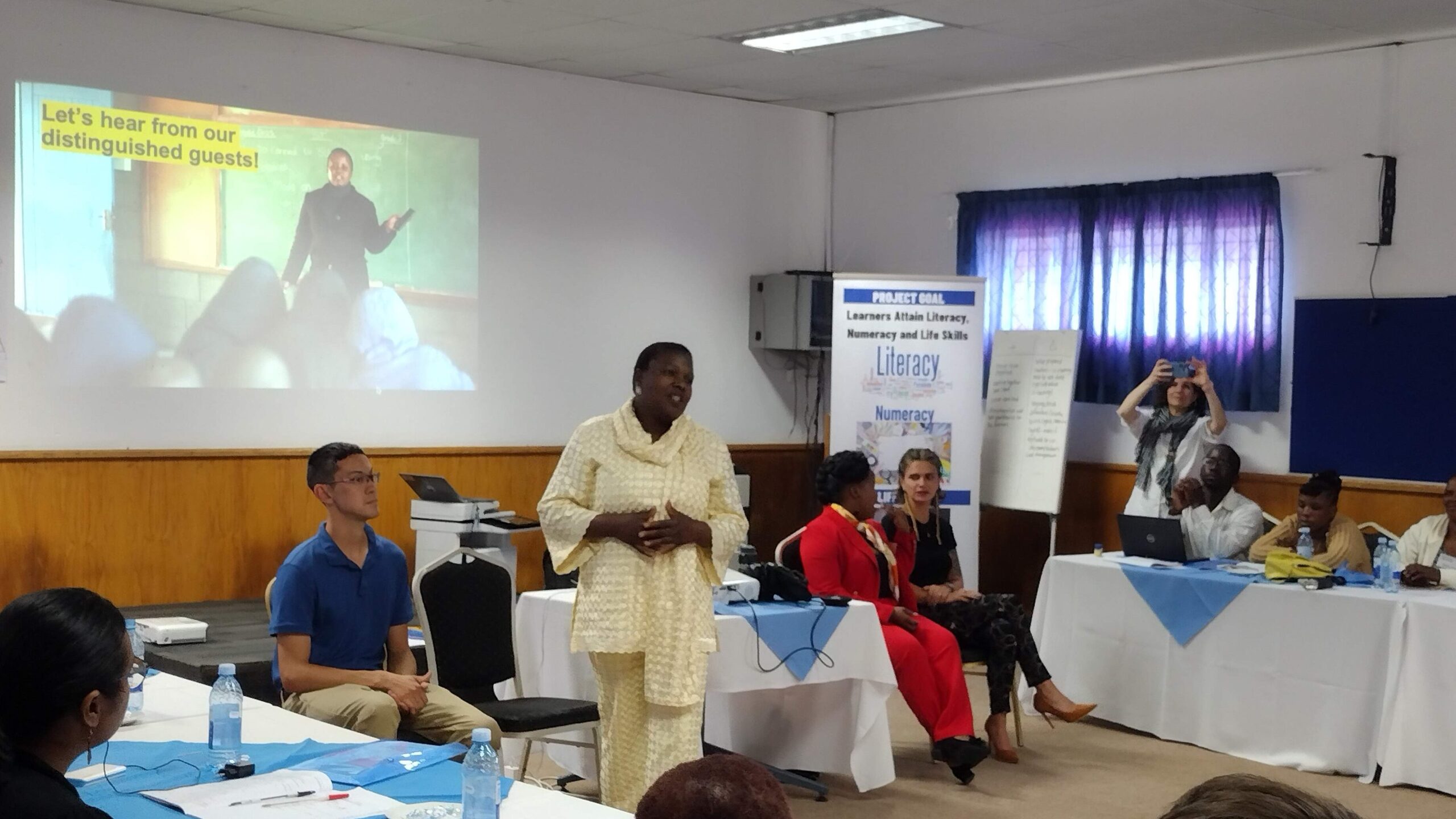
Earlier this month, our team kicked off a second year of collaboration with Peace Corps Lesotho by leading a multi-day train-the-trainer with 40 Education PCVs and counterpart teachers, representing 20 schools from across the country.
After learning about SolarSPELL’s history, development and goals, participants connected to the SolarSPELL digital library’s Southern Africa Education collection, which is localized for Lesotho’s schools. They were able to explore the library on their own for a while, before getting a guided tour of some of the library’s content.
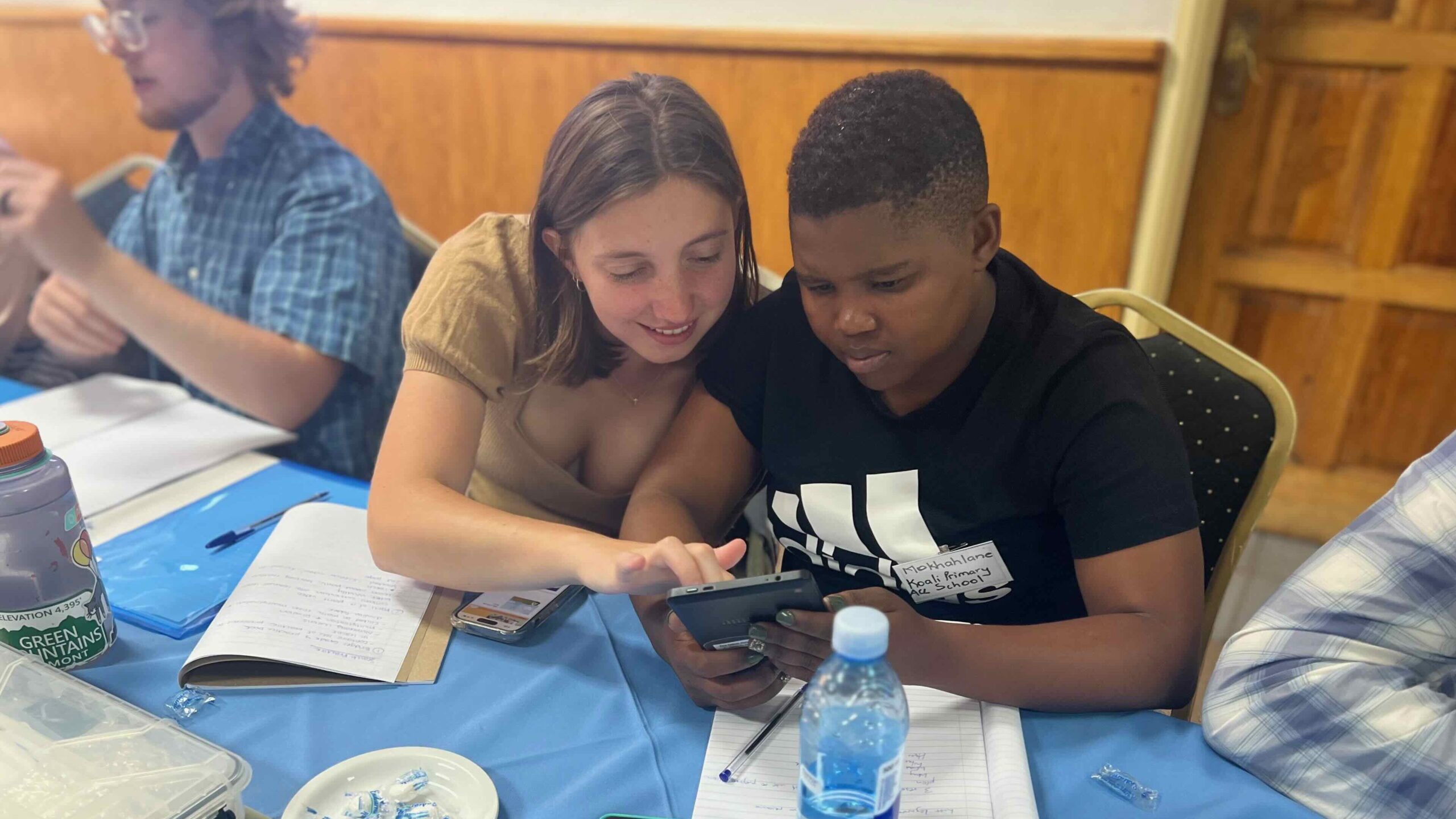
Then it was time for our panel of experts to share their experiences. ’M’e Leboea, Paul, ’M’e Serobanyane and Madison have become SolarSPELL champions since their own training last January. They were able to share accounts of using the digital library for everything from playing English audiobooks to setting up a technology club for students that meets after school (and also before school, due to popular demand by the students).
’M’e Serobanyane and Madison shared how they were able to convince parents to let their children borrow their smartphones to bring to school: by only allowing phones to be on airplane mode while on the school grounds! This way, parents can rest assured that their students aren’t using costly data and will only be able to access the free offline SolarSPELL library.
Even more excitingly, they also shared photos of the physical library they are setting up at their school, which will house both traditional books and the SolarSPELL digital library. “We’re trying to make everything be within reach for the community,” said ’M’e Serobanyane.
Our team was also able to show a clip of Paul using the SolarSPELL in one of his classes, demonstrating how students can share a limited number of devices between them and still have a powerful learning experience.
After the panel, the trainees received the SolarSPELL library that they would be taking back with them to their own schools and communities. The excitement was palpable as the pairs practiced connecting and disconnecting the wires to power on the library’s computer, which boots up the Wi-Fi.
More tips and helpful hints for finding resources on the library were presented next, and the SolarSPELL Training Course (STC) was introduced. The STC is an offline course that looks and feels like taking an online course, where participants not only learn and practice everything they need to know about using the library, but also develop their skills to become SolarSPELL trainers themselves.
This course was developed in response to teachers letting us know over the years that they felt confident in their own ability to use the SolarSPELL library at the conclusion of the training, but felt less confident in training others once they got back to their own school. It is meant to support our trainees in every way.
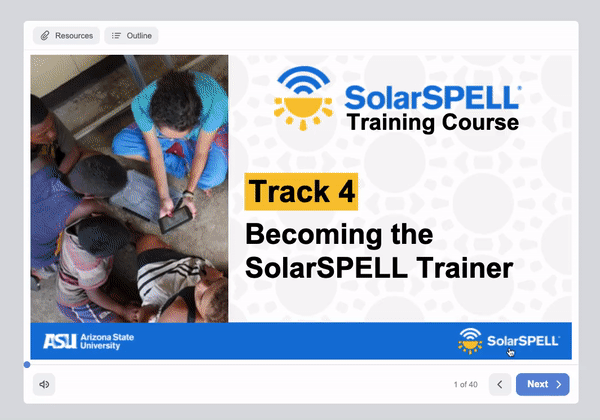
Trainees then got a chance to practice preparing lesson plans in teams, using resources from the digital library, as well as preparing an action plan to introduce the SolarSPELL library at their schools.
“When the SolarSPELL is used effectively, it changes our approach to teaching,” said ’M’e Leboea. “It also changes the learners, the way they approach learning.
“It has made learners love learning because using devices to them is learning in a fun way … they get skills through that fun, and those skills will be with them forever.”
We are so grateful to ’M’e Leboea, ’M’e Serobanyane, Paul and Madison for sharing their expertise at this year’s training, and we cannot wait to see what this cohort of Peace Corps Volunteers and teacher counterparts go on to accomplish at their schools!
